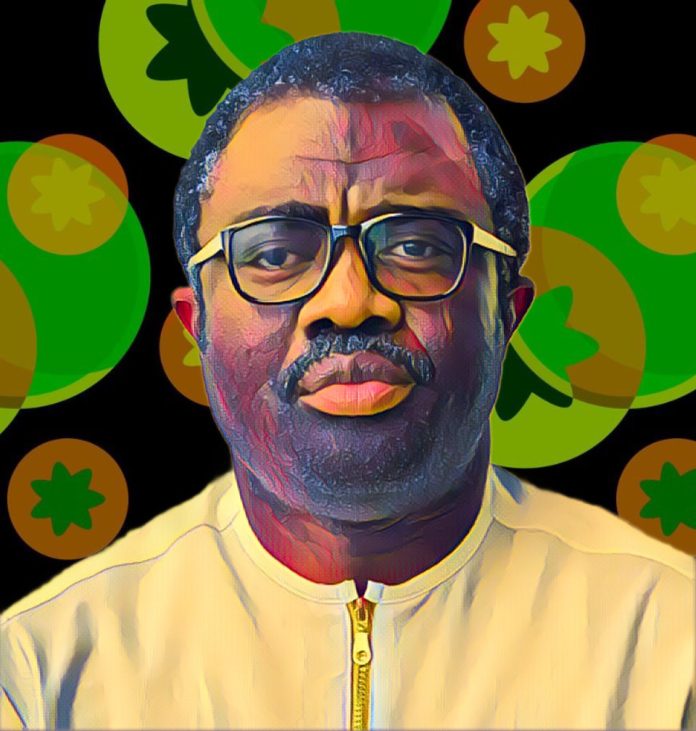As the 2025 governorship election in Anambra State approaches, Dr. Paul Chukwuma, former National Auditor of the All Progressives Congress (APC), has voiced strong opinions against zoning. He argues that zoning is a ploy to prevent credible candidates from running for office. Chukwuma, from Anambra North Senatorial District, insists that the focus should be on a candidate’s competence, not their origin.
In a recent interview, Chukwuma stated, “The elements that should be key are one’s capability and the ability to discharge responsibility. Where a candidate comes from shouldn’t matter.” He emphasized that the governorship should be about addressing the state’s issues, such as insecurity, which affects all regions equally.
Chukwuma highlighted that the current governor is from the South, yet the state still faces significant security challenges. This, he says, demonstrates that the problem is not about the governor’s origin but about effective governance. “I am very confident that I’ve got what it takes to deliver for Ndi-Anambra,” he said.
Historically, Anambra voters have not strictly adhered to zoning. In previous elections, candidates from all zones have contested. “In every election, we have always had a similar scenario. Even the incumbent governor has been contesting all this while,” Chukwuma noted. He pointed out that voters tend to choose candidates based on their party and policies, not their geographical origin.
Chukwuma criticized the idea of zoning as a recent development that lacks historical precedence in the state. He argued that zoning has been used as a tactic to exclude capable candidates from the race. “It’s a gimmick, a decoy to prevent credible candidates from contesting the election,” he asserted.
As the APC gears up for the 2025 election, Chukwuma welcomed the influx of new members into the party. He believes that having more people in the party increases the chances of winning elections. “Election is a game of numbers. We need to talk to people; we need to engage with people,” he said.
Chukwuma assured that the party would handle any potential post-primary election crisis by ensuring transparent and fair primaries. “Whoever wins will do so credibly,” he stated. He expressed confidence that the party’s candidate would emerge victorious in the general election.
Chukwuma also addressed why the incumbent governor needs to be replaced. He acknowledged the governor’s credibility and experience but argued that the All Progressives Grand Alliance (APGA) has outlived its usefulness. “APGA is a one-party state. It’s only in Anambra that we run APGA as a political party,” he said. He emphasized the need for Anambra to connect with the center and benefit from being part of the ruling party.
Chukwuma pointed out that being aligned with the ruling party would bring numerous benefits to the state, such as addressing erosion problems that require extra funding. “We need to be in the midst of the progressive governors to make a special case to the President,” he explained.
He also criticized the isolationist stance of APGA, which he believes limits the state’s opportunities. “We are losing out because we are running a party that is isolated,” he said. Chukwuma argued that greater integration with the federal government would attract more positions and resources to the state.
Looking ahead to 2025, Chukwuma outlined his priorities for Anambra if elected governor. His first move would be to conduct local council elections to devolve power to the grassroots. “We need to ensure that this arbitrariness in the local council management system is obliterated,” he said. He believes that empowering local councils will take the government closer to the people and enhance democracy.
Chukwuma also emphasized the importance of addressing insecurity to make Anambra attractive to investors. “A safe state is attractive to investors,” he said. He plans to open up the Omambala area and transform it into the food basket of the state and beyond.
Additionally, Chukwuma highlighted the need for a reliable power supply, which has now been moved out of the exclusive legislative list, allowing states to source their energy. “The moment we have security and power, Anambra would burst loose in terms of development,” he said. He believes that with security and power, Anambra’s entrepreneurial spirit will drive significant economic growth.
As the 2025 election approaches, Chukwuma’s candidacy highlights the ongoing debate over zoning and the future direction of Anambra State. His focus on competence, security, and economic development sets the stage for a competitive and dynamic election.



